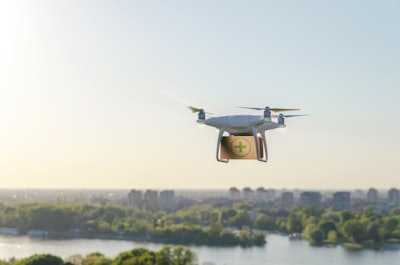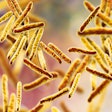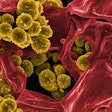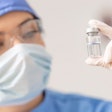
The future is closer than you think. Unmanned aerial vehicles -- or drones -- delivering diagnostic tests or essential medicines to people may sound like science fiction. But drones are slowly being incorporated into the clinical laboratory workflow.
"Even though I spent four years working pretty intensely on medical drones, for a long time, I was feeling like 'Oh that will never happen,'" said Dr. Timothy Amukele, PhD. "But, in fact, it is happening."
Amukele, who is an assistant professor of pathology at the Johns Hopkins University School of Medicine and the associate director for clinical pathology programs for Pathologists Overseas, has used drones on several clinical and medical projects in Africa.
The key benefit of using drones in medicine is their ability to provide access to healthcare in challenging settings, such as in remote locations where there are no roads, in urban high-traffic areas, and in poor countries where access to medicines and diagnostic laboratories is limited by both distance and bad roads.
However, drones are not yet a turnkey solution to all of healthcare's problems. Amukele spoke on drones and the clinical laboratory during a September 28 session of the American Association for Clinical Chemistry's annual meeting.
Drones meet diagnostic testing
Most of the exciting work in using drones for healthcare is occurring outside of the U.S., according to Amukele. For instance, for the past five years, drones have been delivering blood in Rwanda, a country with difficult terrain. A drone can cut the time of blood delivery in the country from four hours to 15 minutes, according to World Health Organization article.
Other examples include the 2016 UNICEF pilot drone program for rapid HIV testing of infants in Malawi. In 2017, a humanitarian drone corridor was set up in the region with help from UNICEF to deliver emergency medical supplies, vaccines, and samples for laboratory diagnosis.
Once the COVID-19 pandemic hit, Malawi, along with Rwanda and Ghana, used drones to deliver regular medical commodities, COVID-19 supplies, and medical samples, according to a UNICEF report.
In the U.S., the COVID-19 pandemic spurred a pilot program in 2020 among Quest Diagnostics, DroneUp, and Walmart to bring COVID-19 self-test kits to residents in parts of the U.S., including Cheektowaga, NY, Las Vegas, and El Paso, TX.
Medical samples delivered by drone
Amukele also noted a partnership in the U.S. that is ongoing: UPS and Matternet, a technology platform-as-a-service company that was founded in 2010 in Mountain View, CA.
The partnership was established in 2019 to deliver medical samples by drone across WakeMed, a major healthcare system in North Carolina. During the pandemic, the two companies collaborated on different projects, including delivering COVID-19 vaccines to Atrium Health Wake Forest Baptist Medical Center in North Carolina.
Infectious disease testing is "a great use case" for Matternet, according to Jon Michaeli, global head of sales and business development at the company.
"If you're thinking of COVID-19 and PCR tests and things like that, then response turnaround time is really important," Michaeli said. "First, if [patients] are sick, you need to get the treatment. And secondly, are they contagious? Then they need to quarantine, otherwise, it can spread -- and quite quickly. Having a drone on demand ... to be able to provide the delivery to a lab for analysis means quicker turnaround time for the clinician and for the patient."
With respect to the integrity of the COVID-19 swab samples, Michaeli explained that samples are not affected by movement of the drones or from pressure changes resulting from altitude, since the drones are not flying very high.
In September 2021, Matternet announced a partnership with Abu Dhabi-based technology company SkyGo. The companies announced a successful demo of a flight transporting patient PCR tests from Zayed Sports City, Abu Dhabi, to a laboratory. They plan to begin commercial operations delivering medical supplies, medicine and blood units, vaccines, and samples between laboratories, pharmacies, and blood banks across healthcare facilities around Abu Dhabi in 2022, according to a release on Matternet's website.
 Pictured is Matternet's M2 in Abu Dhabi. In September 2021, Matternet announced a city-wide drone delivery network for the transporation of medical products in Abu Dhabi in collaboration with the Abu Dhabi Department of Health and SkyGo. Image courtesy of Matternet.
Pictured is Matternet's M2 in Abu Dhabi. In September 2021, Matternet announced a city-wide drone delivery network for the transporation of medical products in Abu Dhabi in collaboration with the Abu Dhabi Department of Health and SkyGo. Image courtesy of Matternet.What about lab samples?
As a laboratorian, Amukele also wondered: Would drone flights affect lab samples?
He and his colleagues ran experiments that replicated how lab samples are transported and processed. In one such study published in the Journal of Clinical Pathology, the group flew human blood samples across 161 miles of Arizona desert for three hours while a paired sample waited in a vehicle.
 Dr.Timothy Amukele and Jeff Street in 2017 setting a new delivery distance record for medical drones. Image courtesy of Johns Hopkins Medicine.
Dr.Timothy Amukele and Jeff Street in 2017 setting a new delivery distance record for medical drones. Image courtesy of Johns Hopkins Medicine.There were similar results for samples flown by drone and those delivered more traditionally for red blood cell, white blood cell and platelet counts, and sodium levels, among other results. Statistically significant but small differences were seen in glucose and potassium levels, due to temperature differences, according to a release by John Hopkins.
The study indicated that drones can be an effective, safe, and timely way to quickly transport medical samples from remote sites to laboratories, the release noted.
How does a laboratorian get involved with drones?
For laboratorians interested in incorporating drones into the lab workflow, Amukele suggested staying current on the latest news on drones and health and working on a remote pilot license through the U.S. Federal Aviation Administration.
"The biggest thing is to stay abreast of what's happening in drones and health," he said. "A lot of the most exciting work is happening outside the U.S., for example, the use of drones to deliver blood products in Rwanda -- that's been going on for about five years now."
But the regulatory environment in the U.S. is hindering progress, Amukele said.
"So far, we have these proof-of-concept work going on mostly in poorer countries, because it's just easier to kind of get going," he said. "Even if you wanted to just add an apple to a child's lunchbox, you know, here in the U.S., we would have to ... meet with committees."
He added that rules in the U.S. state that "you can't fly close to people or over people ... and you can't fly things that are potentially biohazardous, which sounds fine. Except as laboratorians, we know the whole point of hospitals -- that you have to get close to people. If you're sort of flying out in the desert, it's not really that useful."
In addition to the regulatory challenge, Amukele cited other challenges to scaling up the use of drones in healthcare: low (but rising) public opinion, engineering and infrastructure challenges, and no industrywide quality standards, among other issues.



















